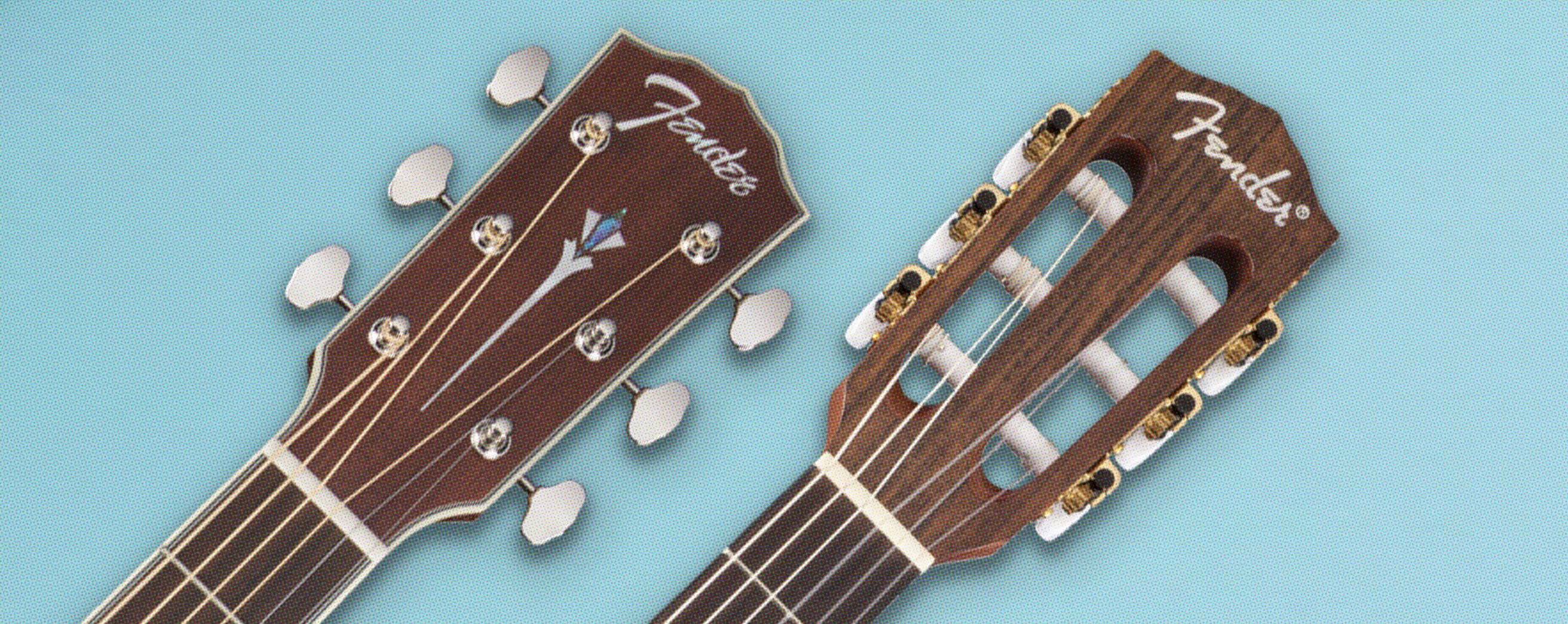By Mike Duffy
Nylon Strings vs. Steel Strings. Which Works Best for You?
The differences go beyond the material they're made out of.

The debate between nylon strings and steel strings has been discussed for ages, and there are arguments in favor of both.
Yes, nylon strings are softer and more gently on players’ fingers, so beginners generally won’t have to worry about finger pain or developing the callouses that will help them practice pain-free.
Steel strings, on the other hand, are under a higher amount of tension and therefore need a greater amount of force to fret notes properly. And steel strings are, well, made out of steel, so sore fingers are definitely in your future.
When looking at steel- or nylon-string acoustics, the conversation goes deeper than just the string material.
Musical Taste
First, consider what type of music you want to play. Most popular music, like rock, bluegrass and country, is played on steel-string guitars because of the strings’ crisp, bright tone. They simply offer more volume and power.
Meanwhile, nylon-string guitars are used most often for the sweeping sounds of classical, jazz and bossa nova because of their lighter attack. Because they are under less tension at pitch and are more flexible, the sound is notably mellower.
Construction
Along with the differing musical genres, nylon-string guitars are different than their steel counterparts. Nylon-string guitars are usually smaller and often don’t have electronics, cutaways or fretboard markers. They also have wider necks, which add more space between the strings, and bodies that start at the 12th fret, not the 14th fret like most steel-string guitars. With steel-string guitars boasting 14 frets clear of the body and often a cutaway, that makes it easier to reach the high frets and solo.
Don’t miss out!
Be the first to know about new products, featured content, exclusive offers and giveaways.
Tuning
Tuning is another way to separate nylon and steel. Nylon strings must be tuned often, Because they are made out of a softer material, they are more sensitive to temperature and humidity and frequently go out of tune. Steel strings might need to be tuned regularly if you’ve got a new set, but once they settle, that won’t be the case.
At the end of the day, the choice between a nylon-string guitar and a steel-string guitar comes down to personal preference. Just know that they are not interchangeable and your decision should be based on more than just how they make your fingers feel.


